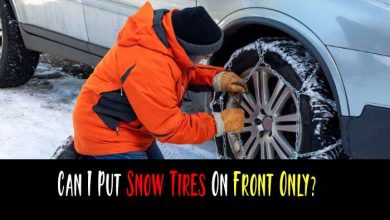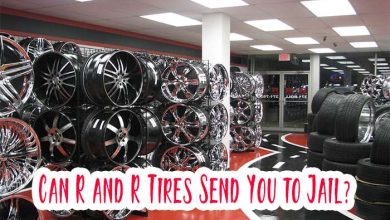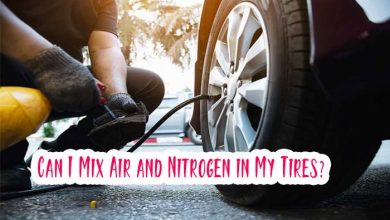Can I Leave My Car Parked With A Flat Tire?
When faced with a flat tire, the immediate question that comes to mind is whether it’s safe to leave the car parked in that condition.
This comprehensive guide delves into the intricacies of parking with a flat tire, exploring the risks, potential damages, and the best course of action to ensure your vehicle’s safety and longevity.
It is not recommended to leave your car parked with a flat tire. While it may not cause any immediate damage if you only leave it for a short period of time, it can lead to several issues in the long run.
Understanding the Impact of a Flat Tire
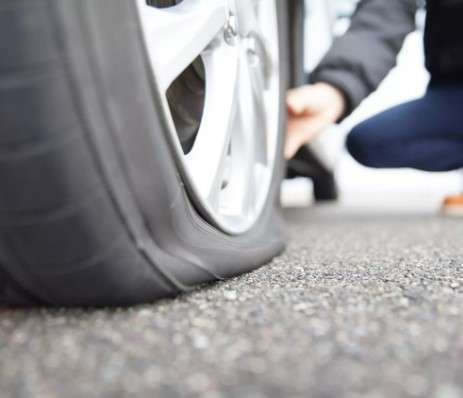
Before we jump into the specifics, let’s take a moment to understand the gravity of a deflated tire. A flat tire isn’t just an inconvenience; it’s a potential risk to your vehicle’s overall health. Here’s a quick rundown:
- Uneven Weight Distribution: A flat tire disrupts the balance of your car, leading to uneven weight distribution. This can strain other tires and impact your vehicle’s alignment.
- Rim Damage: When a tire is flat, the rim takes on more pressure. This increased load can result in lasting damage to the edge, leading to costly repairs.
- Suspension Strain: Your car’s suspension system isn’t designed to bear the brunt of a flat tire for extended periods. Leaving it parked in such a state can strain the suspension, causing issues down the road.
Read Also: ABS Light ON! Is This for Low Tire Pressure?
Factors to Consider Before Leaving a Car with a Flat Tire
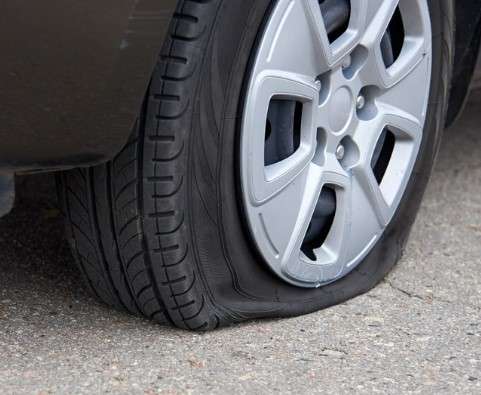
Now that we’ve scratched the surface let’s explore the factors you should weigh before deciding to park your car with a deflated tire:
- Type of Flat: Not all flat tires are created equal. Assess the severity of the flat – is it a slow leak or a complete blowout? This will influence your decision.
- Duration of Parking: Leaving a car with a flat tire for a short term may have different consequences than doing so for an extended period. Consider the length of time you plan to leave it stationary.
- Parking Surface: The surface on which you park matters. If it’s a smooth, even surface, the impact on your car might be less severe than leaving it on rough or uneven terrain.
Can I Leave My Car Parked with a Flat Tire?
Can I Leave My Car Parked with a Flat Tire? Leaving your car parked with a flat tire for an extended period is not recommended. While it may not cause immediate damage to the tire, there are several potential risks associated with doing so:
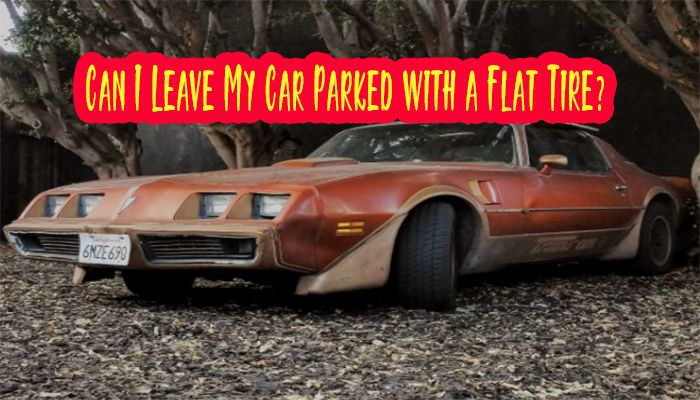
- Damage to the tire: The weight of the car resting on the flat tire can cause damage to the tire’s sidewall, which may not be apparent until the tire is inflated again. This damage can make the tire more prone to failure and may even be irreparable.
- Damage to the wheel: If you drive on a flat tire, the tire’s sidewall can rub against the wheel, causing damage to both components. This damage can also lead to tire failure and be expensive to repair.
- Loss of control: Driving on a flat tire can make your car difficult to control, especially at high speeds. This can increase your risk of an accident.
- Reduced fuel efficiency: A flat tire can also reduce your car’s fuel efficiency. This is because the vehicle has to work harder to overcome the drag caused by the flat tire.
For these reasons, replacing or repairing a flat tire as soon as possible is best. If you cannot do so immediately, try to find a safe place to park your car, such as off the street or in a parking lot.
You should also avoid driving on a flat tire, even for short distances. Read More- Can I Drive with a Bubble in My Tire?
Options for Temporary Fixes on the Spot
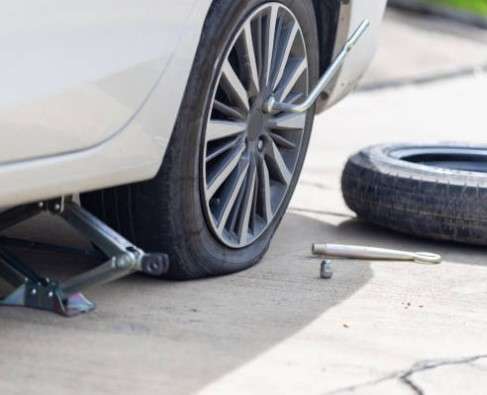
Now that we’ve covered the risks let’s discuss damage control. If you find yourself with a flat tire and need a quick fix, consider these options:
- Tire Inflator Kits: Keep a tire inflator kit in your trunk for emergencies. These kits typically include a sealant that can temporarily patch up small punctures and reinflate the tire.
- Spare Tires: If your car has a spare tire, use it as a temporary solution. Remember that light tires are not meant for prolonged use and should be replaced with a proper tire as soon as possible.
- Professional Assistance: When in doubt, seek professional help. Towing services can transport your car to a repair shop, ensuring a thorough inspection and adequate repairs.
Real-Life Consequences: User Stories
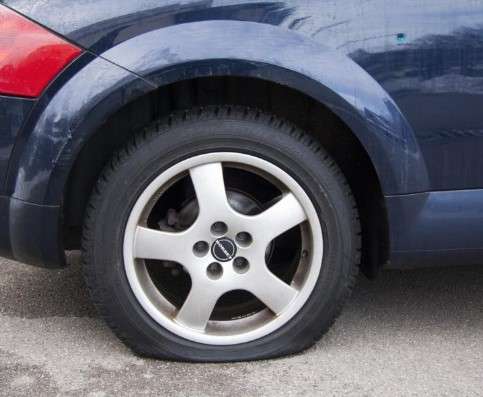
To drive the message home, let’s delve into real-life stories where leaving a car parked with a flat tire led to unforeseen consequences. These anecdotes serve as cautionary tales, highlighting the importance of prompt action.
- Case 1: The Weekend Trip Turned Nightmare: John left his car parked with a slightly flat tire over the weekend, thinking it was a minor issue. Come Monday, he found the tire irreparably damaged, leading to an unexpected dent in his wallet.
- Case 2: The Ignored Warning Signs: Sarah ignored the warning signs of a slowly deflating tire, opting to park her car for an extended period. The result? A complete blowout, a damaged rim, and an unplanned visit to the auto repair shop.
Conclusion
In the intricate dance of tires and roads, a flat tire is a misstep that can have lasting consequences. As a tire expert, I advise tread carefully – assess the situation, consider the risks, and take prompt action when needed.
Have you ever faced the dilemma of leaving your car parked with a flat tire? Share your experiences and solutions in the comments below. Let’s turn this dull discussion into a rolling conversation!
Glossary
- Alignment Issues: Problems with the proper adjustment of a vehicle’s wheels.
- Tire Inflator Kits: Emergency kits containing sealant and a compressor to address minor tire punctures.
- Spare Tires: Extra tires carried in vehicles for temporary use in case of a flat tire.
